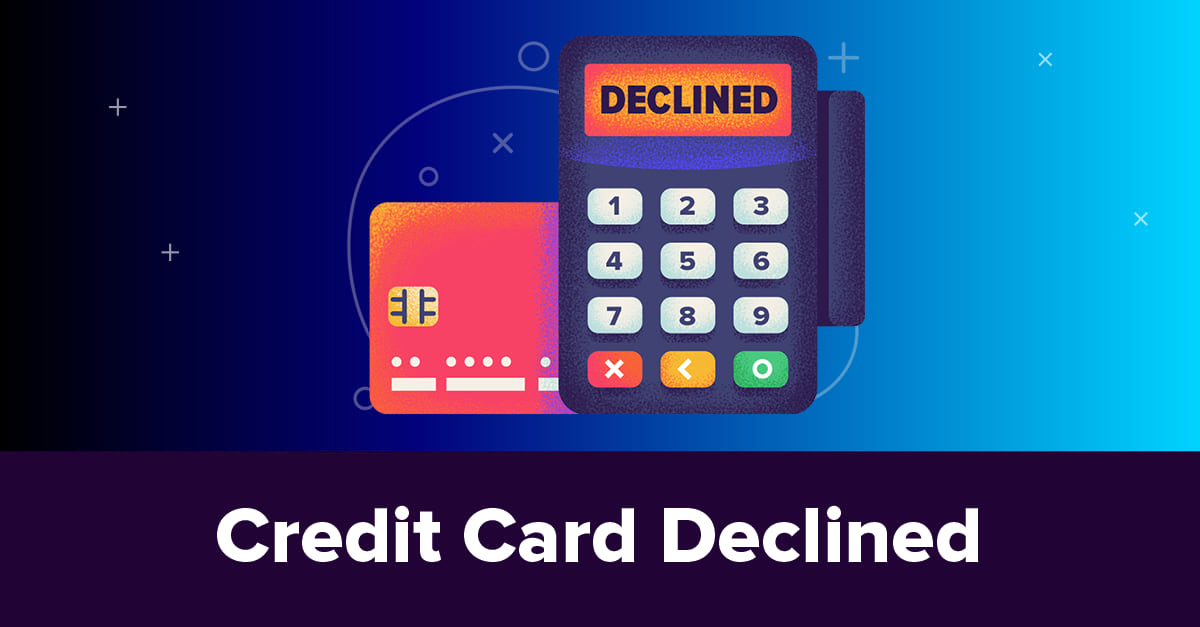Declined Credit Card Advice Guide
We've all been there: standing at the checkout counter, ready to make a purchase, only to have our credit card declined. It's a moment of panic and embarrassment, especially if there's a line of people behind you. But here's the good news: having your credit card declined won't actually hurt your credit score. However, it's important to understand that some underlying factors leading to a declined card, such as missed payments or maxing out your card can have a negative impact on your credit. So let's dive deeper into this credit card conundrum and shed some light on the matter.
Credit Card Debt Forgiveness: A Brief Mention
Before we delve into the effects of a declined credit card, let's take a moment to touch upon an important topic— credit card debt forgiveness. While it may seem unrelated, it's worth noting that credit card debt forgiveness programs exist to provide relief to those struggling with overwhelming debt.
These programs can potentially help you manage your credit card obligations and improve your overall financial situation. But remember, having your card declined is not an automatic gateway to debt forgiveness. It's simply an aspect of managing your credit health.

Photo Credit: https://wallethub.com/edu/cc/credit-card-transaction-declined/25834
Understanding the Impact of a Declined Card
When a merchant declines your credit card, it's usually due to reasons like insufficient funds, suspected fraud, or an expired card. These issues are temporary and don't directly impact your credit score. Rest assured, the decline itself is not reported to credit bureaus.
However, it's crucial to recognize that the reasons behind a declined card may be tied to credit-related problems. If you've missed payments or have a habit of maxing out your credit card, these factors can adversely affect your credit score. It's essential to address these underlying issues to avoid future declines and safeguard your creditworthiness.
Missed Payments and Their Consequences
Late or missed payments are among the most significant contributors to a decline in credit scores. If you consistently fail to make payments on time, it indicates to lenders that you may be a risky borrower. While a single missed payment may not have a severe impact, a pattern of late payments can significantly damage your creditworthiness.
Maxing Out Your Credit Card: Proceed with Caution
Maxing out your credit card—utilizing the entire credit limit—can be detrimental to your credit score, even if your card isn't declined. This action increases your credit utilization ratio, which measures the amount of available credit you're using. A high utilization ratio can signal financial strain and impact your creditworthiness. It's advisable to keep your credit utilization below 30% to maintain a healthy credit profile.
Preventing Declined Cards and Protecting Your Credit
Now that we understand the potential credit-related issues that can lead to a declined card, it's time to focus on prevention. Here are a few tips to protect your credit and avoid the embarrassment of a declined transaction:
1. Pay your bills on time: Consistently making payments by their due dates show responsible credit management and help maintain a good credit score.
2. Monitor your credit utilization: Keeping your credit card balances low and utilizes only a portion of your available credit can positively impact your creditworthiness.
3. Update your card information: Ensure your credit card details, including the expiration date, are up to date to avoid declines caused by outdated information.
4. Contact your card issuer: If you experience frequent card declines despite managing your credit responsibly, reach out to your card issuer to investigate and resolve any potential issues.
In Conclusion
To answer the question, " Does having your credit card declined hurt your credit?"—the short answer is no. The act of a card being declined does not harm your credit score. However, it's essential to recognize that the underlying reasons behind a declined card, such as missed payments or maxing out your credit limit, can have a negative impact on your credit health. By practicing responsible credit management, making timely payments, and keeping your credit utilization in check, you can protect your credit and avoid future declined transactions.
So the next time your credit card is declined, take a deep breath and remember that it's just a temporary setback. Focus on addressing any potential credit issues and continue working towards maintaining a healthy credit score. And always remember, a declined card may be embarrassing, but it won't hurt your credit.
So, does having your credit card declined hurt your credit? The answer is clear: No, but it's essential to address the underlying credit issues that may lead to a declined card to safeguard your financial well-being.




















